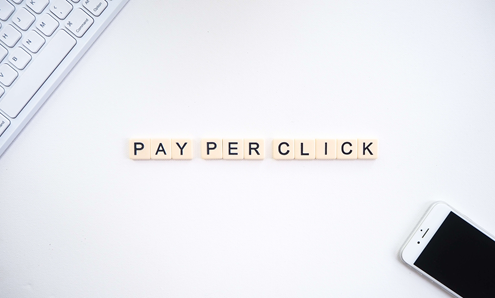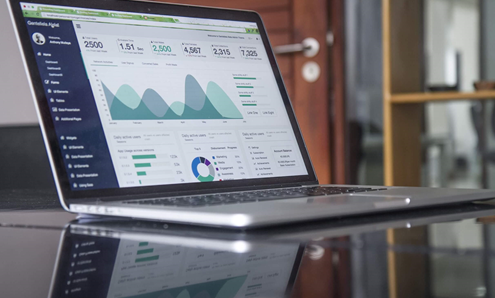For small businesses operating at a regional level the key to success is bringing in enough localised custom as possible, and local SEO is one of the most effective tools at your disposal.
So, let’s take a deep dive into the world of local SEO and give you 10 top tips to improve yours.
What is local SEO?
Local search engine optimisation (SEO) is the process of optimising your online presence to bring in more business and ultimately boost your bottom lines from local searchers using search engines.
When you think about search engines, Google is probably the first one that jumps to mind, and while it is the goliath of the search engine world, when it comes to local SEO it’s important not to overlook the other options: Yelp, Bing, Apple Maps, and so on.
Why is it important?
80% of consumers use search to find local information, so if you don’t localise your small business’ SEO you could be missing out on four out of five potential consumers.
By optimising your local SEO you’ll achieve:
- More website traffic
- More leads, and
- More conversions.
What small business doesn’t want a wider consumer base and more sales? Let’s get tuck into the all-important ‘how’.
10 ways to improve your local SEO
1. Google My Business
First things first you need to create a Google My Business (GMB) account - it’s possibly the most effective way to rank higher in both Google search local results and on Google Maps, since Google is naturally more at ease sharing information it can verify and support.
Even though local searches make up 46% of all searches, over half (56%) of local retailers haven’t claimed their listing and could be missing out on heaps of custom.
You can create a GMB account here, and once you’ve provided all the information to your profile, this will show up in local search results. Here are our top tips for creating a top-notch account:
- Provide accurate and up-to-date information (don’t forget to update this as and when necessary), including:
- Opening times
- Logo
- What you sell
- Images
- Accepted payment methods
- Contact details
- Encourage customer reviews and respond to them in a personable manner
- Publish announcements, events, special offers, and promotions using Google Posts within your GMB account
2. Reviews
Asking your satisfied customers to leave you reviews online will achieve two things:
- It will optimise your GMB presence further, and
- It will encourage more of your target local customers to spend their money with you.
Good reviews can be a goldmine for businesses - 61% of consumers look for reviews before making a purchase and 85% believe reviews are as valuable in the decision-making process as personal recommendations.
It’s up to you how you go about asking for reviews, you can straight up ask your customers to leave you one at the point of sale, or you might send an email follow-up with a review request.
Good to know: Google has no problem with businesses asking customers for reviews, but Yelp actively discourages it.
3. Voice search
When it comes to more general SEO for website ranking purposes, keywords play an important role. Essentially, the idea is to include words and phrases on your website that consumers are likely to type into their search bar.
Voice search is becoming increasingly popular, in fact, it’s predicted that in 2020 voice searches will make up 50% of all searches, and this number is only set to go up.
So, when it comes to keywords then, you need to bear this in mind. Voice searches are typically longer and more conversational so try and include long-tail keyword phrases to optimise for this.
4. Local content
Creating your own content that’s directly relevant to localised issues is a powerful tool to pique the attention of your target local customers. There are loads of ways you might wish to do this, but here are our three favourites:
- Blog posts - you could write blog posts relating to specific local events, news stories, or activities.
- Videos - do you support a local school or charity? Then a video demonstrating your philanthropic endeavours is a great idea.
- Location-specific webpages - if you have multiple premises across a certain region, e.g. a chain of cafes, barbers, taxi ranks, etc. then set up separate webpages for each area full of high-quality local content.
These tactics will not only grab the attention of consumers, but it’ll boost the effectiveness of your SEO since there’ll be loads of extra relevant local keywords and links on your site.
5. Optimise for mobile
British internet usage is switching to mobile at a staggering rate, and online activity using smartphones now makes up two-thirds of consumers’ internet use, so optimising your website for mobile is super beneficial for local SEO and SEO alike.
Research shows 90% of smartphone users make local searches on their device, and of the consumers who were making mobile searches with local intent, 75% actually make an in-store visit within 24 hours.
You can make your site mobile friendly by:
- Making speed a priority
- Using larger font sizes
- Making your website responsive
- Enabling dark mode
- Ditching pop-ups and text blocking ads
- Optimising image sizes
- Sticking to simple designs.
6. Local keywords
We’ve referenced keywords in relation to voice search and their SEO boosting capabilities, so it makes sense then to hone in on local keywords to bolster your local SEO further.
You can do this by making use of Google’s Keyword Planner which allows you to filter keyword searches according to your location to give you an idea of the most popular search terms in your region. You can use these strategically throughout your website.
Top tip: if your business is located near a local landmark, try and reference this somewhere on your website. For example, if you’re a restaurant located near the Angel of the North, you might include references to ‘dining with views of the Angel of the North’ - it’ll help you scoop up lots of tourists as well as locals.
7. Get specific
As we alluded to a little earlier, creating specific location pages is a must for any business who has multiple sites across a region, and each page needs its own unique content to be effective. This content should include:
- Opening hours
- Contact details
- Description of goods or services on offer
- Reviews
- Google maps for that specific location (super effective for local SEO)
- Details of any promotions or events
If you don’t have multiple sites, then creating a dedicated ‘About Us’ page is crucial to gain the same benefits for local SEO. If you’re a venue dresser, for example, you might provide details of how you helped dress the floats at your town’s annual carnival.
8. Business directories
Online directories like Yelp, Yellow Pages, and TripAdvisor are a powerful tool at your disposal. By getting your business listed on these sites, it’ll boost your local SEO no end and also help with visibility in searches.
Your business listing on directories should include:
- Business name
- Address
- Contact number.
Top tip: it’s really important this information is consistent across all directories!
Plus:
- A detailed description of your business
- Opening hours
- Backlinks to your website.
9. Links
Both internal and external links within and to your website are really important for the purposes of SEO.
Internal links support user navigation of your site, assist with your website hierarchy, and distributes ranking power among pages.
External links, or backlinks, are when other websites link to yours and this is a big ranking factor for search engines because it tells them you’re a legitimate business and raises your domain authority.
You can increase backlinks by:
- Improving the quality of your content so others want to link to it
- Pairing up with other reputable businesses and guest blogging on their site
- Engaging with local influencers.
10. Optimise URLs, meta descriptions, etc.
Every additional page on your website is a new indexed page and a new opportunity to target local keywords and boost your chances of being found in local searches.
But it’s not in just the main body of text on that page you can do this, also consider:
- The page URL.
- Meta descriptions - the snippet used to summarise the page’s content.
- Title tags - these specify the title of the page and are what appear as a clickable headline in search engine results.
- H1s, H2s, H3s, etc. - these are your page’s headings and subheadings.
The world of SEO is constantly evolving with the likes of Google regularly introducing new features for local searches. Our advice? Implement these 10 tips to give yourself a head start and a solid foundation for implementing future local SEO strategies.
For loads more useful resources and guides like this one head to our jam-packed blog.





